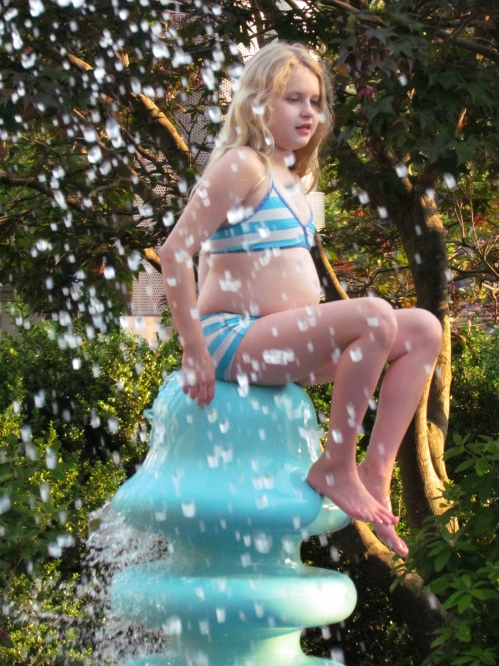My 10-year-old autistic daughter, Emma, became fixated with having a sleepover. Her older brother, Nic, has sleepovers regularly. Emma wanted one too. Only Emma has never been invited for a sleepover. Joe, Emma's therapist, suggested he and his wife have Emma and his goddaughter of a similar age over for the night. Emma was thrilled. It was all she wanted to talk about.
On the designated night Emma, in wild anticipation, raced out of our apartment without a glance back. The next morning when Emma returned I watched her burst through the front door. I saw how she didn't look at the other little girl she'd spent the night with, and I felt a seed of sadness lodge itself in my chest. I saw how in the photos and from Joe's summary of those 16 hours away, Emma had not interacted with the other girl as much as they'd co-existed. I wondered what Joe's goddaughter felt about Emma. I wondered what it was like for her to have a sleepover with a child who didn't seem to care that they were now parting ways. And then I felt awful for having those thoughts.
Emma was genuinely happy to have had a sleepover and, in fact, seemed exuberant to be away from us for a night. When she left, I could see Emma was ready for her adventure away from her family. This is as it should be. This is what all children experience. That initial flicker of desire to venture off, to have experiences that do not involve her parents, which over time will grow into a more steady, determined flame, was a good thing.
So what was my problem?
My expectations, my worries, my fears... In addition, I projected my own hopes and ideas of what a sleepover means onto Emma. Emma's sleepover was not the sleepover I had in mind. A sleepover should be a night spent whispering secrets, laughing, playing, holding hands and exchanging friendship bracelets. But what little girl was I projecting that onto? Certainly not my daughter.
I was in eighth grade and had been invited to a slumber party. Unbeknownst to me, several of the girls got up in the middle of the night and hid my bra in the freezer, much to their amusement and my embarrassment and shame. Embarrassment because I did not require a bra, yet wore one anyway. Shame because it felt mean, yet everyone else was laughing. Laughing in a way that made me feel isolated and alone. Shame because I wanted to be included, often was included, but never felt I really fit in. They laughed, so I tried to laugh too, which made them laugh all the harder. I remember feeling relieved when my mother came to pick me up. "How was your sleepover, darling?" my mother asked. "Okay," I answered. How could I explain? How could I tell her about something that I hadn't entirely understood? How could I put into words that which I found confusing and oddly shameful? "Did you have a good time?" my mother asked. "It was fine," I said, turning my head away from her to stare out the window at the blurred landscape as we drove home.
I am grateful knowing Emma will be spared this kind of sleepover. I am grateful when I take Emma to one of the many sprinkler parks in New York City and she insists on wearing her favorite two-piece bathing suit without self-consciousness. Her belly prominently displayed for all to see, she races from one water-drenched shape to the next with gleeful abandon. Emma is without inhibitions. She is without embarrassment. She is without shame. Female neuro-typicals could learn a thing or two from Emma. I could learn a thing or two from Emma.
It is in those moments, at the water park, as I sit watching her that I come face to face with my perceptions, my expectations and ideas of what should and should not occur in our daily interactions with one another. I catch glimpses of the fallacy, the dishonesty of the words we so carelessly toss about.
"How are you?" "Great!" "How was the sleepover?" "Fine." "Did you have fun?" "It was okay." "You seem sad." "Nope, everything's good."
Even when we aren't. Even when it wasn't.
Emma in the sprinkler park:

To read Emma's Hope Book, click here.
For more by Ariane Zurcher, click here.
For more on autism, click here.